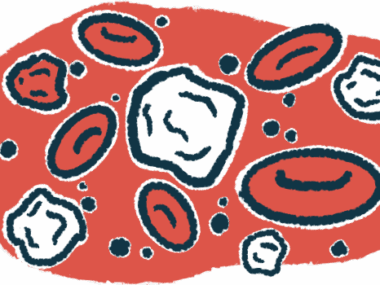A chat with my brother about his myasthenia gravis and diabetes
I continue discovering new things about my brother's health
Written by |

My twin brother, Aaron, was diagnosed with myasthenia gravis (MG) in 1999. It was a moment that changed both his life and my own.
Aaron was 24 at the time and worked as a manual laborer but hadn’t decided on a career yet. MG limited what Aaron could do in life. His muscle flare-ups were so intense in those early years that his arms and hands used to go completely limp. It was decades later that I understood how angry and stressed he was as a young man dealing with this condition.
Aaron needed his relatives to help him more than ever. His eyelids would droop, he had double vision, and he suffered from severe eye misalignment. (He recently had successful strabismus surgery to partially address the latter issue.) Aaron wore sunglasses for decades to hide his eyes. It has only been through our recent conversations that I’ve come to understand that MG can be exacerbated by external factors and can also cause secondary medical issues.
For example, extreme heat worsens his MG flare-ups. Aaron doesn’t run as much anymore because he is afraid of falling in public. He has to take medications for the rest of his life to mitigate his MG symptoms. I hardly take pills, so I can’t relate. Aaron once stopped taking his meds for a while when he thought he was was experiencing partial MG remission. He became a gamer to cope with MG.
Aaron also has diabetes. I wondered if the two conditions were connected.
I like interviewing Aaron about his condition and his life, but it sometimes feels informal. I also believe I should’ve asked these questions long ago. It’s hard for me to adjust to the reality that he has dealt with so many MG complications on his own, with so much having been left unsaid.
When I asked if he had developed diabetes because of MG, his response was, “I’m not sure.”
I continued: “When did you get diabetes? I know you’ve had it for a long time.”
Aaron paused for a moment, thinking about the answer. “Maybe three years after I got MG,” he replied.
“How does having diabetes and MG complicate your life?” I asked.
“Sometimes I don’t know if I’m weak because of MG or diabetes,” he said.
“How many meds do you take daily? I only assumed you took MG meds,” I continued.
“I take six pills a day for my MG and diabetes: three in the morning and three at night,” he said.
“You have to take six pills daily for the rest of your life?” I said.
“Yeah,” he replied.
“How do you deal with that?” I wondered.
“Denial!” he said.
We both laughed. I know he meant it to a degree, but it also seemed like a way for him to cope with his situation.
It’s hard for me to ask “How do you deal with this?” in a different way multiple times. I just want Aaron to know he doesn’t have to deal with things alone anymore.
Note: Myasthenia Gravis News is strictly a news and information website about the disease. It does not provide medical advice, diagnosis, or treatment. This content is not intended to be a substitute for professional medical advice, diagnosis, or treatment. Always seek the advice of your physician or other qualified health provider with any questions you may have regarding a medical condition. Never disregard professional medical advice or delay in seeking it because of something you have read on this website. The opinions expressed in this column are not those of Myasthenia Gravis News or its parent company, Bionews, and are intended to spark discussion about issues pertaining to myasthenia gravis.



Leave a comment
Fill in the required fields to post. Your email address will not be published.